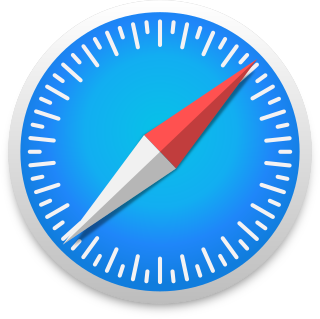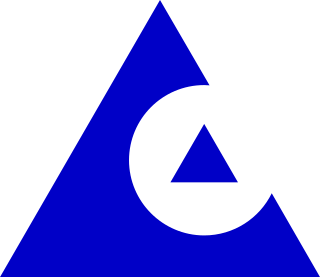Related Research Articles
QuickTime is an extensible multimedia framework developed by Apple Inc., capable of handling various formats of digital video, picture, sound, panoramic images, and interactivity. First made in 1991, the latest Mac version, QuickTime X, is currently available on Mac OS X Snow Leopard and newer. Apple ceased support for the Windows version of QuickTime in 2016.

NeXTSTEP is a discontinued object-oriented, multitasking operating system based on UNIX. It was developed by NeXT Computer in the late 1980s and early 1990s and was initially used for its range of proprietary workstation computers such as the NeXTcube. It was later ported to several other computer architectures.
In computing, cross-platform software is computer software that is implemented on multiple computing platforms. Cross-platform software may be divided into two types; one requires individual building or compilation for each platform that it supports, and the other one can be directly run on any platform without special preparation, e.g., software written in an interpreted language or pre-compiled portable bytecode for which the interpreters or run-time packages are common or standard components of all platforms.
A computing platform or digital platform is the environment in which a piece of software is executed. It may be the hardware or the operating system (OS), even a web browser and associated application programming interfaces, or other underlying software, as long as the program code is executed with it. Computing platforms have different abstraction levels, including a computer architecture, an OS, or runtime libraries. A computing platform is the stage on which computer programs can run.

Safari is a graphical web browser developed by Apple, based on the WebKit engine. First released on desktop in 2003 with Mac OS X Panther, a mobile version has been bundled with iOS devices since the iPhone's introduction in 2007. Safari is the default browser on Apple devices. A Windows version was available from 2007 to 2012.

Sherlock, named after Sherlock Holmes, was a file and web search tool created by Apple Inc. for the PowerPC-based "classic" Mac OS, introduced with Mac OS 8 as an extension of the Mac OS Finder's file searching capabilities. Like its predecessor, Sherlock searched for local files and file contents, using the same basic indexing code and search logic found in AppleSearch. Sherlock extended the system by enabling the user to search for items through the World Wide Web through a set of plugins which employed existing web search engines. These plugins were written as plain text files, so that it was a simple task for a user to write a Sherlock plugin.
Internet Explorer for Mac OS X is an unsupported inactive proprietary web browser developed by Microsoft for the Macintosh platform. Initial versions were developed from the same code base as Internet Explorer for Windows. Later versions diverged, particularly with the release of version 5 which included the cutting edge, fault-tolerant and highly standards-compliant Tasman layout engine.

Canvas X is a drawing, imaging, and publishing computer program from Canvas GFX for personal computers.

EndNote is a commercial reference management software package, used to manage bibliographies and references when writing essays and articles. It is produced by Clarivate Analytics.
Scrivener is a word-processing program and outliner designed for authors. Scrivener provides a management system for documents, notes and metadata. This allows the user to organize notes, concepts, research and whole documents for easy access and reference. Scrivener offers templates for screenplays, fiction, and non-fiction manuscripts. After writing a text, the user may export it for final formatting to a standard word processor, screenwriting software, desktop publishing software, or TeX.

MonoDevelop is an open-source integrated development environment for Linux, macOS, and Windows. Its primary focus is development of projects that use Mono and .NET frameworks. MonoDevelop integrates features similar to those of NetBeans and Microsoft Visual Studio, such as automatic code completion, source control, a graphical user interface (GUI) and Web designer. MonoDevelop integrates a Gtk# GUI designer called Stetic. It supports Boo, C, C++, C#, CIL, D, F#, Java, Oxygene, Vala, JavaScript, TypeScript and Visual Basic.NET.

Serif (Europe) Ltd is a privately owned British developer and publisher of software. It provides software and associated products direct to customers through its website and contact centre in the United Kingdom, and through retailers.
ShiVa3D is a 3D game engine with a graphical editor designed to create applications and video games for desktop PCs, the web, game consoles and mobile devices. Games made with ShiVa can be exported to over 20 target platforms, with new export targets being added regularly.

Tweetie was a client for the social networking website Twitter. There is a mobile version that runs on iPhone, iPod touch, and iPad, and a desktop version runs on Mac OS X Leopard, Snow Leopard and Lion.
ooVoo was a video chat and a messaging app developed by ooVoo LLC and owned by Krush Technologies, LLC. ooVoo had applications for Android, iOS, Mac OS X, Microsoft Windows, Windows Phone, and Facebook. The original Microsoft Windows app was released in 2007. On November 25, 2017, ooVoo announced via Twitter that it would be shutting down.

Mac OS X Lion is the eighth major release of Mac OS X, Apple's desktop and server operating system for Macintosh computers.

The Chromium Embedded Framework (CEF) is an open-source software framework for embedding a Chromium web browser within another application. This enables developers to add web browsing functionality to their application, as well as the ability to use HTML, CSS, and JavaScript to create the application's user interface.

The Xojo programming environment and programming language is developed and commercially marketed by Xojo, Inc. of Austin, Texas for software development targeting macOS, Microsoft Windows, Linux, iOS, the Web and Raspberry Pi. Xojo uses a proprietary object-oriented BASIC dialect, formerly known as REALbasic, but now known as Xojo.
References
- ↑ Twitter: PC version release alongside OS X, Macaw, February 17, 2014
- ↑ http://macaw.co/invision/